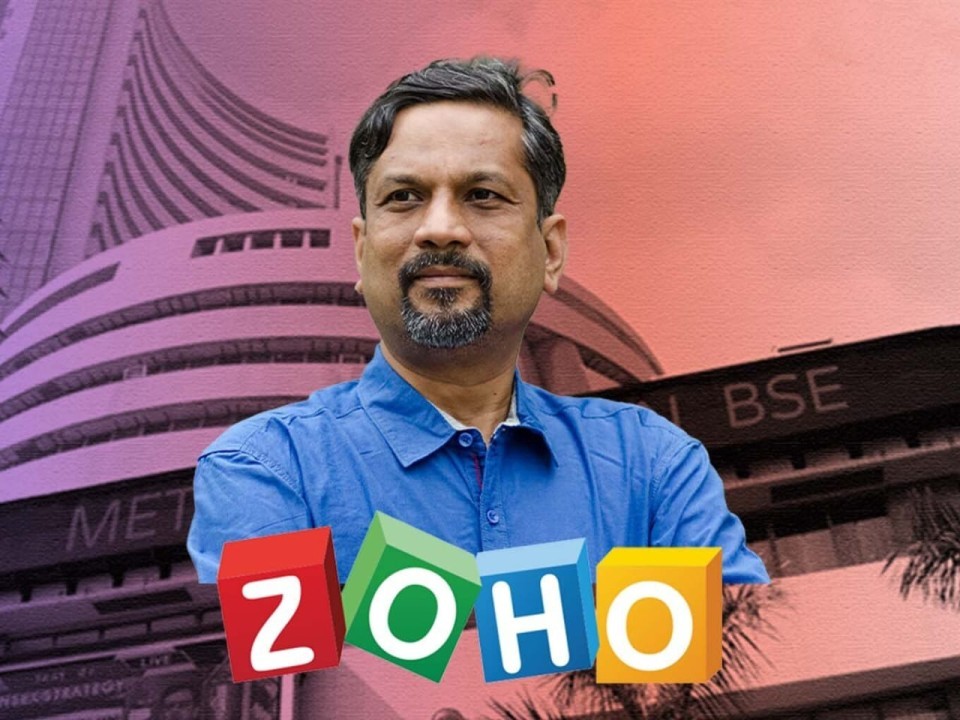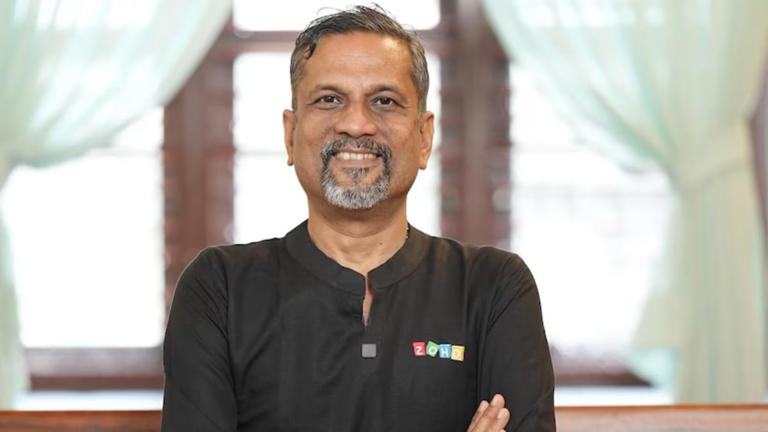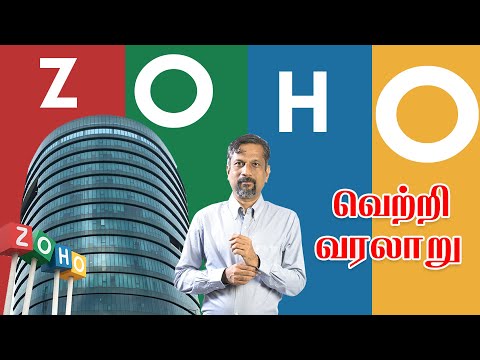
Sridhar Vembu: Zoho Founder – History, Background, Qualification, Life, and Success Story
Sridhar Vembu is one of India’s most unconventional and compelling technology entrepreneurs — a man who built a globally respected SaaS (software as a service) company from modest beginnings, deliberately chose to decentralize from big cities to rural India, and speaks openly about his views on education, language, and social development. In this article, we explore his history, background, qualifications, family life, lifestyle, net worth, and more — giving you a holistic portrait of the man behind Zoho.

Early Life & Background
- Birth & Origins
Sridhar Vembu was born in 1968, in Tamil Nadu, India. His ancestral village is in Thanjavur (Tanjore) district, Tamil Nadu. Some sources mention a more specific origin near Chidhambaranaadhapuram, close to Anaikkarai in Thanjavur district. - Family Background
His parents came from relatively modest means. While he later built immense wealth, his early environment was not privileged. His father reportedly worked as a stenographer for the High Court in Chennai, and his mother was a homemaker. Some accounts also mention that the family had agricultural ties, as many in their region did. - Schooling & Early Education
In his formative years, Vembu studied in Tamil medium in local schools. His academic excellence allowed him to move forward to higher studies. - Why This Background Matters
The origins of Vembu—in a rural region, from modest means, in a local language medium—play an important role in his later philosophy of democratizing access and decentralizing talent from cities to villages. His life narrative often contrasts starkly with typical tech-entrepreneur life stories, and that contrast gives him a unique voice in India’s startup ecosystem.
Academic Qualifications
- Bachelor’s Degree – IIT Madras
Vembu earned his undergraduate degree in Electrical Engineering from the Indian Institute of Technology, Madras (IIT Madras). He graduated in 1989. - Graduate Studies – Princeton University
After his undergraduate studies, he traveled to the United States to pursue advanced studies. He obtained both an MS and a PhD in Electrical Engineering from Princeton University in New Jersey. - Academic Interlude
After his PhD, and before fully committing to entrepreneurship, Vembu briefly ventured into academia/teaching roles. He took up a teaching position in Australia (at the Australian National University) but left after a short stint (allegedly just two weeks), feeling that academic life was not for him. - Philosophy & Learning Approach
Later in life he has been critical of rigid credentialism and overemphasis on elite education, arguing that talent and ability exist outside conventional institutions. He is a proponent of learning by doing and creating alternative pathways (e.g., Zoho Schools) beyond formal degrees.

Early Career & Founding Zoho
- First Corporate Roles
After completing his education, Vembu joined Qualcomm in the U.S. as a wireless engineer. He lived in places like San Diego, then later in Silicon Valley (San Jose / Pleasanton) while working in telecommunications and software roles. - Founding AdventNet → Zoho
In 1996, along with two of his brothers, Vembu co-founded a software company called AdventNet, focusing initially on software tools for network equipment providers. Over time, the firm evolved, pivoted, and expanded its product scope. In 2009 AdventNet was rebranded as Zoho Corporation, with a focus on SaaS applications, particularly for CRM and business productivity. - Bootstrapped Growth
One of the distinguishing features of Zoho’s growth is that it is largely bootstrapped—meaning it has avoided external venture capital / private equity financing. Vembu has repeatedly emphasized retaining independence, avoiding external pressures, and focusing on long-term product integrity. - Decentralization Strategy
Unlike many tech companies which cluster in big cities or global tech hubs, Vembu initiated a strategy of placing development offices in rural or small-town India. Zoho has offices in villages like Mathalamparai, Tenkasi (Tamil Nadu) and in locales outside major urban centers, to harness rural talent and reduce geographical concentration. - Zoho University / Zoho Schools
To support his vision of alternative education and talent cultivation, Vembu set up Zoho University / Zoho Schools. These are internal training programs (often post-12th grade) that train students in software / coding skills, sometimes absorbing them into Zoho’s workforce—even without formal college degrees. Today, a nontrivial fraction of Zoho’s engineering workforce comes via such alternative pathways. - Recent Role Shift
In January 2025, Vembu officially stepped down as CEO of Zoho and moved into the role of Chief Scientist, to concentrate more of his time on research & development, innovation, and his rural development mission.
Family & Personal Life
- Marital Status & Spouse
Sridhar Vembu was married to Pramila Srinivasan (sometimes also spelled Pramila Srinivasan Vembu) in the late 1990s. - Children
The couple had a son, often referred to as Siddhu (or similar spelling). Their son has been reported to have Autism / special needs, which has been a personal and emotional dimension in Vembu’s life narrative. - Challenges / Divorce Proceedings
From around 2021 onward, media reports emerged that Vembu and his wife had legal disputes in the United States over share transfers and other financial matters. The couple had reportedly initiated divorce proceedings in a California court. Vembu publicly denied accusations that he had inappropriately moved company shares without her approval. - Siblings & Stake in Zoho
Vembu is not alone; his siblings (notably Radha Vembu) are co-owners / stakeholders in Zoho. Radha Vembu is herself a successful businesswoman and holds significant shares in Zoho, and plays roles within the company (e.g., email service, as per some sources).

Lifestyle, Interests & Personality
- Simplicity & Rural Immersion
Despite his wealth, Vembu is often cited for leading a relatively austere and grounded lifestyle. He lives in rural Tamil Nadu (Tenkasi region) and is known to ride a bicycle around the village. - Vehicles & Cars
The available public information suggests he does not flaunt luxury cars. In fact, in media reports, he has been spotted with an electric three-wheeler (Montra, Murugappa Group) in his village. Some accounts also mention that he owns a Tata Nexon EV (electric SUV) but prefers using smaller, simpler vehicles for daily travel. The choice of modest vehicle reflects his philosophy that mobility should be functional, not ostentatious. - Food & Cultural Tastes
In one public anecdote, Vembu announced that he had tried a ₹20 vada pav in Mumbai for the first time and enjoyed it — noting wryly that for all his worldly travels he somehow missed that staple Indian snack. - Views, Beliefs & Voice
Vembu is outspoken on topics ranging from language, education, inequality, talent distribution, and sustainable business models. He has publicly criticized the notion of English as a status symbol, urged more use of local languages, and argued that intelligence should not become a barrier. He also warns that emerging technologies (e.g. large language models) may threaten many existing software jobs if professionals become complacent. - Philanthropy & Social Projects
Vembu’s interests extend beyond pure business. He actively supports local education, rural infrastructure, and the idea of democratizing access to opportunities. His “rural development mission” is a core part of his identity.
Net Worth & Financial Overview
- Estimates from Forbes & Others
As of 2024, Forbes estimated Vembu and his siblings’ combined net worth at US$ 5.85 billion, ranking them among India’s top wealthy individuals. Some media reports translate that to rupee figures (e.g. ₹50,000 crore). Earlier estimates in prior years had placed him at lower values (e.g. ~$2.44 billion in 2020). - Ownership vs Liquidity
Because Zoho is a privately held company and not publicly listed, much of Vembu’s wealth is tied to his shareholding in Zoho and in related ventures, not in liquid public assets. - Business Performance
Zoho has grown steadily in revenue, profitability, and global reach. While exact annual numbers may vary, the company reportedly has revenues in the order of thousands of crores (Indian rupees) and strong margins. - Other Investments & Projects
Vembu has expressed interest in broader technology areas (semiconductors, chip fabrication) and there have been reports that Zoho was exploring building a chip fab via an entity named Silectric Semiconductor Manufacturing. However, public information suggests that such plans have faced obstacles or delays. Because of the private and evolving nature of such ventures, concrete financial estimates are hard to verify.
Challenges, Criticisms & Controversies
- Internal Disputes / Employee Relations
Past controversies include a former Zoho product marketing manager resigning after a disagreement regarding internal forum posts. Critics accused Vembu of being unsympathetic or rigid in internal criticism. - Alleged Share Transfer Dispute & Marital Conflict
The legal disputes with his former spouse, particularly around transfer of shares, have drawn media attention and debate. - Critiques of Ideological Stances
Given Vembu’s bold positions on language, education, and decentralization, he sometimes draws critique from those who disagree with his ideological interpretations or who see conflicts between high-tech scale and rural upliftment claims. (These critiques are less formalized but exist in opinion media.) - Scaling & Talent Challenges
Putting serious R&D or product development centers in rural areas can face challenges: infrastructure constraints, connectivity, talent retention, and local ecosystem limitations. While Vembu’s model is inspirational, some skeptics caution about replicability at scale.
Current Role & Future Outlook
- As of 2025, Vembu has moved into the Chief Scientist role at Zoho, stepping away from day-to-day CEO responsibilities to focus on innovation, advanced research, and his rural mission.
- He continues to be a vocal thought leader, commenting on policy, regulation, language, and tech’s role in society.
- Expansion into new domains (like semiconductors, hardware, or deeper AI) remains a possibility, though such projects carry high risk and capital requirements.
- His model—of combining entrepreneurial success with social intent and decentralization—positions him as a case study in balancing profit with purpose.
For the Latest Jobs Notifications: Click Here
Join With Us On WhatsApp: Click Here
Join With Us On LinkedIn: Click Here
Free Python Learning: Click Here
Shruti
0
Tags :